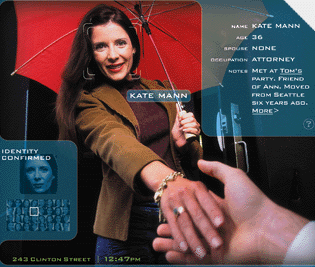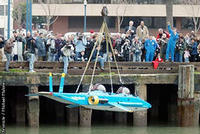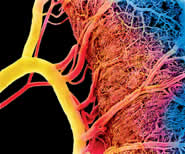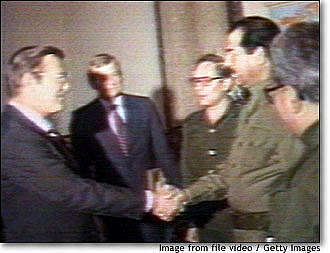|
This is my dynamic, frequently updated homepage. This is a NewsLog, also known as a WebLog or Blog.
Everything is evolving, so don't assume too much.
People to watch:
Adina Levin
Andrius Kulikauskas
Britt Blaser
Catherine Austin Fitts
Chris Corrigan
Clay Shirky
Dan Gillmor
Dave Pollard
David Allen
David Weinberger
Dewayne Mikkelson
Dina Mehta
Doc Searls
Elisabet Sahtouris
Elizabeth Lawley
Euan Semple
Florian Brody
Frank Patrick
Gen Kenai
George Dafermos
George Por
Graham Hancock
Greg Elin
Hazel Henderson
Heiner Benking
Inspector Lohman
Jean Houston
Jerry Michalski
Jim McGee
Jim Moore
John Abbe
John Perry Barlow
John Robb
Joi Ito
Jon Husband
Jon Lebkowsky
Jon Udell
Jonathan Peterson
Judith Meskill
Julian Elvé
Julie Solheim
Kevin Marks
Lawrence Lessig
Leif Smith
Letecia Layson
Lilia Efimova
Lisa Rein
Marc Canter
Mark Oeltjenbruns
Mark Pilgrim
Mark Woods
Martin Dugage
Martin Roell
Mary Forest
Matt Mower
Max Sandor
Michael Fagan
Mike Owens
Mikel Maron
Mitch Kapor
Mitch Ratcliffe
Nathalie dArbeloff
Netron
Noam Chomsky
Paul Hughes
Peter Kaminski
Phil Wolff
Philippe Beaudoin
Ray Ozzie
Raymond Powers
Rebecca Blood
Roger Eaton
Roland Tanglao
Ross Mayfield
Scott Lemon
Sebastian Fiedler
Sebastien Paquet
Skip Lancaster
Spike Hall
Steven Johnson
Stuart Henshall
Thomas Burg
Thomas Madsen-Mygdal
Thomas Nicholls
Timothy Wilken
Todd Suomela
Tom Atlee
Tom Munnecke
Tom Tomorrow
Ton Zijlstra
Lionel Bruel
Loic Le Meur
Nancy White
Mark Frazier
Merlin Silk
Robert Paterson
Colby Stuart
Nova Spivack
Dan Brickley
Ariane Kiss
Vanessa Miemis
Bernd Nurnberger
Sites to watch:
Edge
Junto
Absara
Rhizome
Nanodot
HeadMap
Openworld
FutureHi
Imaginify
Do No Harm
BoingBoing
Smart Mobs
Webcamorama
MetaFilter
NotThisBody
Disinfopedia
YES Magazine
Collective Web
WorldChanging
Disinformation
Escape Velocity
Space Collective
Friendly Favors
Emergent by Design
Independent Media
Global Ideas Bank
Forbidden Science
Greater Democracy
ThoughtsOnThinking
Disclosure Project
Explorers Foundation
Manufacturing Dissent
Collective Intelligence
Action without borders
Free Expression Network
Co-intelligence Institute
Electronic Frontier Foundation
French:
Emmanuelle
Manur
Elanceur
Loeil de Mouche
IokanaaN
Blog d'Or
Le Petit Calepin
GeeBlog
Absara
Guillaume Beuvelot
Ming Chau
Serge Levan
Jean Michel Billaut
C'est pas Mécanique

I live in Toulouse, France where the time now is:
01:06
Unique Readers:

Primarily
Public Domain
Everything I've written here is dedicated to the
Public Domain.

The quotes from other people's writings, and the pictures used might or might not be copyrighted, but are considered fair use. Thus, overall, this weblog could best be described as being:
Primarily Public Domain. |
Syndication:
 ![Validate my RSS feed [Valid RSS]](http://www.newciv.org/pic/valid-rss.png)
|
| Wednesday, February 5, 2003 |  |
|
|
|
 "Time is that quality of nature that keeps events from happening all at once. Lately it doesn't seem to be working." --Anonymous
My copy of "Getting Things Done" by David Allen arrived today. Matt Mower recommended it. I'm excited. I paged through it and read the first chapter. It might just keep me from going insane. It is all about unloading ALL the stuff floating around in your mind which you sense you ought to be doing something about, and putting them into a system you can trust to be able to find them in again, so that you can relax and enjoy life in the moment without worrying about mountains of incomplete and ill-defined tasks."There is usually an inverse proportion between how much something is on your mind and how much it's getting done." It is close to 20 years ago since I last felt really organized. It involved In-, Pending- and Out-baskets on my desk. It involved daily to-do lists, with items I could happily check off during the day. It involved a routine of Do It, Delegate It, File It, or Toss It, with every item that came to me. And it involved a filing cabinet with folders with nice labels on. Unfortunately the world has changed since then. It was before e-mail and cellphones for one thing. And everything is now more fast, more fuzzy, more multi-dimensional, and there's a hundred times more of everything. Something better is needed. I think I once again have hope, that I might possibly once more become organized and stress-free.
[ Knowledge | 2003-02-05 19:30 | | PermaLink ] More >
|
|
|
|
 Today I received my Certificate of Registration for the service mark ORGSPACE from the United States Patent and Trademark Office. It's for the word, not the logo, and it is as applied to online software. For those of you who haven't tried it, it is a rather lengthy process to register a trademark (for tangible products) or service mark (for services). Took about three years, and a number of phone calls with lawyers. Today I received my Certificate of Registration for the service mark ORGSPACE from the United States Patent and Trademark Office. It's for the word, not the logo, and it is as applied to online software. For those of you who haven't tried it, it is a rather lengthy process to register a trademark (for tangible products) or service mark (for services). Took about three years, and a number of phone calls with lawyers.
So, what exactly am I going to do with it? I'm not sure yet, but the thought is that it is a brand to put on software I'm involved in making, which helps people organize their stuff. Like this NewsLog program. Even better if it happens to be a particularly brilliant universal, multi-dimensional system for storing any kind of information.
[ Diary | 2003-02-05 19:57 | | PermaLink ] More >
|
|
|
|
 U.S. foreign policy is becoming more and more like a Monty Python show. UPI reports that Richard Perle, the chairman of the Pentagon's Policy Advisory Board is condemning French and German policy on Iraq in the strongest terms. He thinks that France's attititude is particularly dangerous and serious. U.S. foreign policy is becoming more and more like a Monty Python show. UPI reports that Richard Perle, the chairman of the Pentagon's Policy Advisory Board is condemning French and German policy on Iraq in the strongest terms. He thinks that France's attititude is particularly dangerous and serious."France is no longer the ally it once was... " and he says the U.S. "must develop a strategy to contain our erstwhile ally or we will not be talking about a NATO alliance." and how about this one "I have long thought that there were forces in France intent on reducing the American role in the world." No kidding!?! It is time to send in the bombers. Those Frenchies are too damned independent. Wanting their own language and foreign policy, sheesh, they're just a bunch of revolutionaries. Let's just freeze them out.
And those Germans: "But in the German case, the behavior of the Chancellor is idiosyncratic. He tried again to incite pacifism, and this time failed in Sunday's elections in Hesse and Lower Saxony. His capacity to do damage is now constrained. Chancellor Schroeder is now in a box, and the Germans will recover their equilibrium." INCITING PACIFISM!?! Yeah, I can see - that's very serious. Maybe it is time to bomb Dresden again, so they can forget about silly notions like that.
Sarcasm aside, it is looking pretty grim if that is official policy. ... Maybe what is going on is that this is now the Internet world, so we actually hear what people like that are talking about, instead of it just being something they would talk quietly about behind closed doors, and then the CIA would sneak out and assasinate somebody and fund some new dictators that were easier to control.
[ Politics | 2003-02-05 22:44 | | PermaLink ] More >
|
|
| Tuesday, February 4, 2003 |  |
|
|
|
 Doc Searls quotes Brent Ashley: Doc Searls quotes Brent Ashley:"What pervasaive meme can we come up with that will be strong enough to counter the powerful theft/piracy images? Let's all blog aloud and get the juices flowing, shall we?
Ownership of physical property implies exclusive use. I own my lawn mower, it's in my posession, in order for you to use it I must relinquish its use to you. You shouldn't loan it to your neighbour in turn without my permission, especially as that extends my inability to make use of it. If you take it from me, I am left without its use altogether. I can ask to be compensated for the loss. I lose a physical entity, and therefore control over its use.
Ownership of intellectual property does not imply exclusive use. You can play my music without depriving me of it. You can loan it to someone else without affecting my use, although you should ask my permission. I never lose my ability to have full use of the work. What I lose when you use my work without my permission or recompense is control over its use.
Obviously these are two very different concepts. Yet they're both called ownership . Concepts of theft and piracy of intellectual property just don't fit. How have such ill-fitting analogies come to permeate our conciousness?" I have some strong things to say about ownership, when I have some time, so later.
[ Culture | 2003-02-04 18:23 | | PermaLink ] More >
|
|
|
|
The Internet Topic Exchange is a new site inspired by Seb Paquet's idea for Ridiculously Easy Group Forming. The idea is that in one's weblog one identifies a post as belonging to a certain topic, and then, through a mechanism like for example TrackBack a centralized site gets notified of it, and it keeps a global index of stories under each of many topics.
I mention it here because I think that can be a very useful thing, and to make a note to myself to remember to get into the technicalities of it, so that users of my NewsLog program can participate too.
[ Programming | 2003-02-04 18:23 | | PermaLink ] More >
|
|
|
|
Timothy Appnel thinks about TrackBack. To explain it to you non-programmer types, TrackBack is a mechanism for letting another site know automatically that you've linked to it in your weblog. It makes it easier for all of us to be able to refer to other people talking about the same stuff.
I've done half of an implementation of a TrackBack thing for the NewsLog program that underlies this weblog here, but I didn't finish getting to understand the whole thing. I got as far as being able to make the required 'ping' to another site by manually entering the information in a form. But it really isn't worth much unless it happens automatically.
[ Programming | 2003-02-04 18:23 | 0 comments | PermaLink ]
|
|
|
|
 Jock Gill has a nice piece on Greater Democracy, which hits some things right on the head. Jock Gill has a nice piece on Greater Democracy, which hits some things right on the head."Nature has worked well for billions of years by making vast numbers of very small bets. This minimizes the risk that a single bad outcome could inflict. For this reason, our conservative brethren are correct in asserting Big Government is a problem. To the extent that Big Government represents a bet too big that imposes unacceptable risks, it is a problem that demands our attention. The failure of the old Soviet Union comes to mind.
But the riskiness of big bets doesn’t apply just to Big Government. It also applies to Big Business. And that’s the big bet today’s conservatives ask us to make over and over. The conservatives of course don’t call it a big bet. They call it 'privatization' and 'consolidation'. But they can’t have it both ways. If they want bigger and bigger bets on business, then we need government to protect the long term good for all by restraining the worst excesses of unfettered market capitalism with its narrow focus and myopic time scales. If conservatives want smaller government, they will have to agree to smaller businesses." Indeed. Big government and big business is the same kind of animal. Both tend to be counter-evolutionary forces, making us all collectively quite a bit dumber than we really are.
[ Politics | 2003-02-04 23:59 | | PermaLink ] More >
|
|
| Sunday, February 2, 2003 |  |
|
|
|
 A number of years ago, after being annoyed about having to wear thick glasses all day since my late teens, I sought out natural methods for improving my eyesight. In particular, I found a vision consultant who taught me principles, methods and exercises, loosely based on the Bates Method. It started working right away, and after a couple of months I could take off my glasses. For years I would only need glasses for driving at night. And I would faithfully do my exercises every day. But at some point I got lazy about it, and didn't keep up the exercises, and my sight has worsened. Not as bad as it was before, but I have to wear glasses if I drive of I'm out shopping. A number of years ago, after being annoyed about having to wear thick glasses all day since my late teens, I sought out natural methods for improving my eyesight. In particular, I found a vision consultant who taught me principles, methods and exercises, loosely based on the Bates Method. It started working right away, and after a couple of months I could take off my glasses. For years I would only need glasses for driving at night. And I would faithfully do my exercises every day. But at some point I got lazy about it, and didn't keep up the exercises, and my sight has worsened. Not as bad as it was before, but I have to wear glasses if I drive of I'm out shopping.
Now, looking around on the net, I found it depressing that the first thing I ran into was a lot of sites where eye doctors were claiming that this kind stuff is complete quackery, that myopia is genetic, and the only answer is glasses or surgery. Hm, I think I have a different opinion about who are the quacks.
What I found most profound about the principles of regaining natural sight is that they apply to many things in life. Here are some of them.
- Sight is primarily mental. If you can imagine something clearly focused, you can usually also see it like that with your eyes. If your mental picture is fuzzy, so is your eyesight.
- Everything in the world is always moving. Natural sight sees that continously, and natural eyes will glide gradually over the scene, rather than jumping around between fixed points. Bad eyesight starts when one begins to see things just as fixed items at fixed distances.
- Instead of letting yourself be thrown around by an apparently solid and immobile world, try turning your perspective around, and assume that you're still, and the whole world is constantly moving around you.
- The periphery is important. Natural sight sees the periphery, the context, all the time, although not as clearly as the portion being focused on. Bad eyesight starts when we focus on one thing to the exclusion of everything else, and when we insist that everything has to be clearly in focus. The periphery is never in focus - duh - but it is nevertheless very important.
- Natural sight is relaxed. You see better by relaxing, not by straining.
Just going for glasses or surgery, without changing one's habits, is almost as silly as taking a pain killer because somebody's standing on your foot. I feel bad that I've allowed myself to be so busy and stressed that I've forgotten about some of the fine ways I have of being relaxed and seeing better.
Here are some more sites: brief overview, method in a nutshell
[ Information | 2003-02-02 14:41 | | PermaLink ] More >
|
|
|
|
BBC says that Nestle has come to an agreement with Ethiopia, concerning their claim for $6 million. This looks like a victory for the Make Trade Fair campaign. I'm sure Nestle has lost a lot more than $6 million from the bad publicity they got from trying to extort money out of a famined country, and that's probably what made them change their minds.
[ News | 2003-02-02 22:38 | | PermaLink ] More >
|
|
|
|
The respected Washington, DC publication The Hill has confirmed that former conservative radio talk-show host and now Republican U.S. Senator Chuck Hagel was the head of, and continues to own part interest in, the company that owns the company that installed, programmed, and largely ran the voting machines that were used by most of the citizens of Nebraska. Used in elections where Hagel won very unexpected landslide victories.
[ News | 2003-02-02 22:49 | | PermaLink ] More >
|
|
|
|
User Not Found is a weblog by Dana J. Robinson, devoted to dealing with the death of online friends. Here, from a piece called 'Not knowing is the hardest':"Given the nature of communicating online, one person's failure to log on for days, weeks or months at a time can cause concern in the people who continue to log on regularly. It's especially worrisome when the person who isn't signing on was living with a known illness. While "killing" online personas happens all the time, the real tragedy occurs when a real life death happens and is chalked up to a person just not logging on anymore." Hm, indeed. How do we know? I can think of online friends who've died where it was only very coincidental that their other online friends heard about it. For one it was only because a family member was so bright and knowledgable to go and send an e-mail to her whole contact list. For another, I didn't know before several years later that he died. It would be nice if we could engage in networks of trust tight enough so that we quite naturally would file next of kin information with others in the network, so that we'll never just disappear without an explanation. Or, maybe, a deadman's switch, which releases certain kinds of contact information if we haven't logged in for some length of time.
[ Culture | 2003-02-02 23:26 | | PermaLink ] More >
|
|
|
|
 Ross Mayfield mentions some interesting thoughts and scenarios concerning augmented reality (e.g. heads up displays showing you information about what you're looking at) converging with moblogging (weblogging via mobile phone type devices). Ross Mayfield mentions some interesting thoughts and scenarios concerning augmented reality (e.g. heads up displays showing you information about what you're looking at) converging with moblogging (weblogging via mobile phone type devices).AR TOMORROW: RECOGNIZING FACES
Ever forget a face? Augmented reality will help you recover seamlessly when you bump into some-one and can't remember whether she's a college acquaintance or your accountant's ex-wife. Your AR system will automati-cally search a personalized face-recognition database, then provide text that tells you not only the name of the person you're looking at, but some key personal details as well. I could sure use one of those. But it is also a bit of a freaky thought.
[ Technology | 2003-02-02 23:37 | 0 comments | PermaLink ]
|
|
| Saturday, February 1, 2003 |  |
|
|
|
 Columbia broke apart over Texas on its way in to landing this morning. I'm sure most of you have heard it already. Columbia broke apart over Texas on its way in to landing this morning. I'm sure most of you have heard it already.
That is very sad in many ways. Sad for the families of the astronauts, sad for the U.S. space program, sad for other space programs.
What is somewhat strange is that it appears much less sad and shocking than 17 years ago when the Challenger shuttle blew up after takeoff. At that time there was a tremendous shock and deep grief. It was a bit like 9/11, a deep wound into the American heart. Everybody were just in shock, sitting glued to radio or TV all day, in disbelief. But today, when I caught the first news about it (in a weblog), and turned the TV on, most people were, yes, very sad, but were also talking about how this is really a danger that goes with the job; not too unexpected; and they were talking about moving on. Very different response compared with the Challenger disaster, both in myself, in people around me, and in who I see on TV. I don't know if it is because people are more numb to disasters after 9/11, or if there is just a different flavor to this event somehow. See also what Glenn Reynolds says.
What is sad is that space exploration could have gotten much further at this point, if it had been properly supported, and this will only set it back further. As Phil Wolff just said:"I'm angry that congressmen for the last 30 years haven't fully funded space exploration. The Columbia should have been bringing back tourists from the moon, settlers from Mars. And this wouldn't have been the 28th mission but the 1000th." The space shuttles are 30 year old technology. They're in no way the height of what is possible today.
For that matter, and that is a lot more touchy, I still don't really believe that this is the real space program. Apollo, the space shuttles, big expensive dangerous rockets using huge amounts of fuel, I don't believe that is the most advanced technology available to humankind. Oh, not that I side with the skeptics who don't think we went to the moon. I think it all happened. But I also think it is a bit of a decoy, keeping us in the belief that space flight has to be ridiculously hard and expensive and wasteful of resources. I think the truth is something different, and I'd guess there are groups within the military-industrial complex who are playing with very different toys.
Not to minimize in any way what happened today. It is a tragedy, and the astronauts onboard Columbia will rightfully be remembered as the heroes they are.
[ News | 2003-02-01 16:10 | | PermaLink ] More >
      
|
|
| Friday, January 31, 2003 |  |
|
|
|
 Most of our societies are based on the "rule of law". Which works out to be about the opposite of how I think things should be. The rule of law is essentially that some rules are written down and agreed upon, and everybody will be equally forced to follow the rules. That is usually presented as a reasonable alternative to everybody just doing whatever they feel like, which would be perceived as a chaotic anarchy. Most of our societies are based on the "rule of law". Which works out to be about the opposite of how I think things should be. The rule of law is essentially that some rules are written down and agreed upon, and everybody will be equally forced to follow the rules. That is usually presented as a reasonable alternative to everybody just doing whatever they feel like, which would be perceived as a chaotic anarchy.
The problem is that lawmakers don't know how to write down principles of social behavior, or they're really just trying to enforce their own moral biases on everybody, so they end up writing huge volumes of detailed rules about how people are supposed to behave or not behave. And invariably they leave a lot open to interpretation, and they forget to think about many contexts where those behaviors aren't necessarily what works, and they end up with a self-contradictory mess. Which makes it a good business to be a lawyer, and those people who can afford more lawyers than others would tend to be more able to get what they want.
Now, the people who actually enforce laws will tend to hide behind the word of the law, and will tend to have the attitude that they're just carrying out the law, or they're just following orders. In other words, they're not responsible. That is by design, by the division of the powers of government. But it is also what usually turns governments into such unfeeling monsters. Lawmakers can sit in confortable chairs and make rules, without having to soil their hands with involvement in the actual circumstances where those laws might or might not work. Police forces will carry out the laws, using force, potentially lethal force. Nobody's really responsible. Different people make the laws than who interpret them than who carry them out.
There's a lot to say about all of this. My first point, however, is that personal responsibility would be a better fundamental principle than would institutionalized irresponsibility. In other words, if the police officer stops you for speeding, or for taking too long zipping up your pants in the public bathroom, he'd better be able to defend why that was the right thing to do right then. Not whether the law told him so or not, but why it served a useful purpose right then and there. Judges who condemn people need to be thoroughly exposed to that which they condemn them to. I.e. attend their executions, or visit them in prison. And politicians should have to face all of that, to experience on their own skin the consequences of their laws. That would be a good first step.
What really ought to change is the inherent insanity in making volumes of laws that are just 'good ideas' but that really don't work in all circumstances in real life. A law says that certain things ALWAYS must be a certain way, and that this will be enforced. Somebody makes a law that says 'nobody's allowed to drive faster than 55mph'. Might sound like a good idea, as it sounds more safe, and it would save gasoline. But then later on somebody thinks 'what about the police or firetrucks?' and maybe they change the law to have an exception for police or firetrucks, or maybe everybody implicitly agrees that it of course wouldn't apply to them. Why not? Any law that has any kind of exceptions is a bad law. What about if I have a medical emergency and need to get to the hospital? What if I drive 75mph and nobody else is around for miles? What if there is some urgent need that you didn't think of spelling out in the law? Its the law that is bad. What it is really trying to accomplish is that people are safe while driving, but it tries to do it by applying the same numbers to everybody. What would rather be needed would be a guideline, a general principle, and some people to carry it out who actually would be responsible for their own choices. There should be nothing to hide behind.
[ Opinions | 2003-01-31 15:23 | | PermaLink ] More >
|
|
|
|
 Steve Gillmor interviews John Perry Barlow on his opinions of DRM (digital rights management), intellectual property law, and copyright extension. John is always worth listening to, and he has important things to say. Steve Gillmor interviews John Perry Barlow on his opinions of DRM (digital rights management), intellectual property law, and copyright extension. John is always worth listening to, and he has important things to say."I think that anybody who cares about the future of technology -- anybody who cares about the future, period -- ought to be awfully concerned about this. But people who work in technology have been agnostic on the subject so far. They need to recognize that they're going to be faced with a fairly stark choice, which is a gradual concentration around certain trusted platforms that cannot be broken out of and are filled with black boxes that you can't code around and can't see the inside of.
You have to get politically active and stop it from happening, because Congress has been bought by the content industry. The choice is being made at a very complex and subterranean political level. It's being done in standard settings, with the FCC, in amendments to obscure bills in Congress, in the closed door sessions to set the Digital Broadcast Standard. It has very significant long-term effects [for] the technical architecture of cyberspace, because what we're talking about embedding into everything is a control and surveillance mechanism for the purpose of observing copyright piracy, but [it] can be used for anything." And as an answer to the question of why it is so difficult to present the case that fair use needs to be protected he says:"It's a difficult proposition because the content industry has done a marvelously good job of getting people to believe that there's no difference between a song and a horse, whereas for me, if somebody's singing my song, I think that's great. They haven't stolen anything from me. If somebody rides off on my horse, I don't have anything and that is theft. Otherwise intelligent people think that there's no difference between stealing my horse and stealing my song. [The content industry] has also managed to create the simplistic and basically fallacious notion that unless we strengthen dramatically the existing copyright [regime], that artists don't get paid anymore. First of all, artists aren't getting paid much now. Second, making the institutions that are robbing them blind even stronger is not going to assure [their] getting paid more. And it's going to make it very difficult for us to create economic [and] business models that would create a more interactive relationship with the audience, which would be good for us economically and good for us creatively."
[ Knowledge | 2003-01-31 16:05 | | PermaLink ] More >
|
|
|
|
 Technology Review compares science fiction visions with the concepts Howard Rheingold talks about in his book "Smart Mobs" and the website with the same name. 'Global Frequency' is a new comic book series by Warren Ellis: Technology Review compares science fiction visions with the concepts Howard Rheingold talks about in his book "Smart Mobs" and the website with the same name. 'Global Frequency' is a new comic book series by Warren Ellis:"Set in the near future, Global Frequency depicts a multiracial, multinational organization of ordinary people who contribute their services on an ad hoc basis. As Ellis explains, "You could be sitting there watching the news and suddenly hear an unusual cell phone tone, and within moments you might see your neighbor leaving the house in a hurry, wearing a jacket or a shirt with the distinctive Global Frequency symbol...or, hell, your girlfriend might answer the phone...and promise to explain later...Anyone could be on the Global Frequency, and you'd never know until they got the call." Ellis's story responds to significant shifts in the media environment — in particular the increasing role of mobile phones and wireless computing - but also to speculations about their social and political impact." And then listen to how Rheingold defines Smart Mobs:"Smart mobs consist of people who are able to act in concert even if they don't know each other. The people who make up smart mobs cooperate in ways never before possible because they carry devices that possess both communication and computing capabilities.... Groups of people using these tools will gain new forms of social power." Like we're all part of the underground. We're able to act in concert, but our organization is invisible, and there's nobody in charge who can be bought.
[ Culture | 2003-01-31 23:59 | 0 comments | PermaLink ]
|
|
| Thursday, January 30, 2003 |  |
|
|
|
Jon Husband suggested that Organizational Development would be a field where Ming the Mechanic might fit in well. And I think that's a good hint. I've always felt comfortable amongst OD people, but I didn't particularly imagine I could be one. Either I thought it would just be about staff training, or I figured I didn't have the right degree, or the right direct work experience to point to. But, indeed, both my interests, and my varied experience in different fields do sort of indicate I might have some potential for a role in helping organizations through change. Being a consultant would be what I'd be interested in, not working for some company's Human Resource department, which I'd have no interest in. I think I need to study up a bit on what it would involve.
Here are some links: Organizational Development Institute, Organizational Development Network, ODportal, Action Science.
[ Diary | 2003-01-30 23:47 | 0 comments | PermaLink ]
|
|
|
|
 The Economist has an excellent article about copyrights, suggesting an overhaul to the current system. Big media companies in the U.S. have recently been successful in extending the copyrights they 'own' far beyond what was originally intended when copyright was invented. The Economist has an excellent article about copyrights, suggesting an overhaul to the current system. Big media companies in the U.S. have recently been successful in extending the copyrights they 'own' far beyond what was originally intended when copyright was invented.The alternative is to return to the original purpose of copyright, something no national legislature has yet been willing to do. Copyright was originally the grant of a temporary government-supported monopoly on copying a work, not a property right. Its sole purpose was to encourage the circulation of ideas by giving creators and publishers a short-term incentive to disseminate their work. Over the past 50 years, as a result of heavy lobbying by content industries, copyright has grown to such ludicrous proportions that it now often inhibits rather than promotes the circulation of ideas, leaving thousands of old movies, records and books languishing behind a legal barrier. Starting from scratch today, no rational, disinterested lawmaker would agree to copyrights that extend to 70 years after an author's death, now the norm in the developed world.
Digital technologies are not only making it easier to copy all sorts of works, but also sharply reducing the costs of creating or distributing them, and so also reducing the required incentives. The flood of free content on the internet has shown that most creators do not need incentives that stretch across generations. To reward those who can attract a paying audience, and the firms that support them, much shorter copyrights would be enough. The 14-year term of the original 18th-century British and American copyright laws, renewable once, might be a good place to start.
[ Knowledge | 2003-01-30 23:47 | 0 comments | PermaLink ]
|
|
|
|
 President Bush first named Henry Kissinger to lead an independent commission to examine 9/11, but he shortly had to excuse himself because of conflict of interest. Now, in December Bush named Thomas Kean, former Republican governor of New Jersey, to be the chairman of that commission. But it seems to be very hard to find people who aren't in bed with the enemy already. Fortune reveals a few things about Mr.Kean: President Bush first named Henry Kissinger to lead an independent commission to examine 9/11, but he shortly had to excuse himself because of conflict of interest. Now, in December Bush named Thomas Kean, former Republican governor of New Jersey, to be the chairman of that commission. But it seems to be very hard to find people who aren't in bed with the enemy already. Fortune reveals a few things about Mr.Kean:Kean is a director of petroleum giant Amerada Hess, which in 1998 formed a joint venture--known as Delta Hess--with Delta Oil, a Saudi Arabian company, to develop oil fields in Azerbaijan.
One of Delta's backers is Khalid bin Mahfouz, a shadowy Saudi patriarch married to one of Osama bin Laden's sisters. Mahfouz, who is suspected of funding charities linked to al Qaeda, is even named as a defendant in a lawsuit filed by families of Sept. 11 victims.
True, Hess is hardly the only company to cross paths with Mahfouz: He has shown up in dealings with, among others, ultra-secretive investment firm Carlyle Group and BCCI, the lender toppled by fraud in 1992. It's all in the family, it seems.
[ Politics | 2003-01-30 23:59 | | PermaLink ] More >
|
|
|
|
Apparently the police in Ohio likes to put up hidden cameras in public restrooms, so they can sit and watch people pee. Yeah, tax money is paying for a bunch of perverts who're sitting behind TV screens, trying to think of something they can charge people with.One of the accused, James Henry, was convicted for standing at a restroom urinal for 47 seconds in May 2001. He is shown leaving the restroom without incident. At his trial, prosecutors convinced the jury that because Henry stepped back from the urinal before fastening his pants, anyone entering the facility "could have" come to the conclusion that Henry was masturbating. He was summarily convicted of public indecency. Hm, yeah, sounds like a dangerous criminal. Too slow to zip up his pants.
[ News | 2003-01-30 23:59 | | PermaLink ] More >
|
|
| Wednesday, January 29, 2003 |  |
|
|
|
 The first Israeli astronaut, Ilan Ramon, is having a good time in space. He said Wednesday from shuttle Columbia that he wishes his homeland — in fact, all of the Middle East — were as quiet and peaceful as it looks from space. The first Israeli astronaut, Ilan Ramon, is having a good time in space. He said Wednesday from shuttle Columbia that he wishes his homeland — in fact, all of the Middle East — were as quiet and peaceful as it looks from space."The world looks marvelous from up here, so peaceful, so wonderful and so fragile." Great. Maybe they should send up Ariel Sharon next time.
[ Inspiration | 2003-01-29 23:59 | | PermaLink ] More >
|
|
|
|
Guardian:Facing its most chronic shortage in oil stocks for 27 years, the US has this month turned to an unlikely source of help - Iraq.
Weeks before a prospective invasion of Iraq, the oil-rich state has doubled its exports of oil to America, helping US refineries cope with a debilitating strike in Venezuela. ...
The trade, though bizarre given current Pentagon plans to launch around 300 cruise missiles a day on Iraq, is legal under the terms of UN's oil for food programme. Eh, that's nice of Iraq to help out a bit. But I think bizarre is a bit of a euphemism.
[ Politics | 2003-01-29 23:59 | | PermaLink ] More >
|
|
|
|
Joi Ito (well-connected Japanese techie blogger) gets an e-mail from somebody looking for a Japanese tutor, because his weblog appeared in a search."One amazing phenomenon of blogs is that because of all of the linking going on they end up with fairly high google rankings. At Supernova, Cory of Boing Boing talked about how people email him asking about things he blogs because his blog entries show up on the top of Google results. Also at Supernova, Sergey Brin co-founder of Google talked about how important the ranking and results algorythms were for Google. For instance, first result for "suicide" can have a life or death impact on someone depending on whether it is a page to help you decide not to commit suicide or a page about how to commit suicide. I am the second entry for "Japan + Dayton Ohio" and #3 for "Takenaka media" for instance. At Davos, I talked to Larry Page, co-founder of Google about the phenomenon. I explained that I was very excited that my entry about how the media failed to report the public support of Takenaka showed up before the media reports. I mentioned that maybe it was the way blogs created a lot of pages and linked to each other a lot and how this was giving them unfair juice. Larry said he thought that blogs were getting higher rankings because they were becoming a more important part of the Internet and implied that he felt the high rankings were fair. Cool. I was beginning to feel a bit guilty about the high rankings and worried that Google would "figure it out" and start lowering the rankings for blogs. If Larry says they're fair, I'm assuming they're fair and I don't have to worry about a 'correction' in my page ranking." I'm glad to hear that too. Even though I'm a relatively low profile weblogger, hardly registering in the top 500, Google really likes my weblog, and many things I say here will appear very high, often higher than the news source that I quote. Which sometimes makes me a bit nervous.
[ Diary | 2003-01-29 23:59 | | PermaLink ] More >
|
|
|
|
 Blogging Event February 15th at the Electronic Orphanage in Chinatown, Los Angeles. It's a production of Rhizome.org, and features Doc Searls, Mark Frauenfelder, Heather Havrilesky, Evan Williams, Susannah Breslin, and Tony Pierce. Sounds great, I'll be there. Blogging Event February 15th at the Electronic Orphanage in Chinatown, Los Angeles. It's a production of Rhizome.org, and features Doc Searls, Mark Frauenfelder, Heather Havrilesky, Evan Williams, Susannah Breslin, and Tony Pierce. Sounds great, I'll be there.
[ Information | 2003-01-29 23:59 | | PermaLink ] More >
|
|
| Monday, January 27, 2003 |  |
|
|
|
 James Snell talks about being in control of one's own identity and storing it on one's own site, like as part of one's weblog: James Snell talks about being in control of one's own identity and storing it on one's own site, like as part of one's weblog:"A discussion on Sam's blog got me thinking about self-hosted identities. Ideally, I should be able to put together a file, discoverable through my weblog, and digitally signed with my private key that contains all of the personal information that I want to make public. When I go to any type of forum (like a weblog) or to a commercial site (like Amazon), if they want my information, they would do what Dave suggests and put a "You know me" button on their page. When I go to the site, I click on the button, the site asks me for the location of my identity file. They download the file and extract the necessary information." And he follows up here and here. We need that, of course. I'm tired of having entered my information on dozens of different sites over the years, and it being mostly outdated and forgotten. Much better that it is on my computer.
[ Knowledge | 2003-01-27 12:08 | | PermaLink ] More >
|
|
|
|
Michael Wilson lists a long list of techie program functions he's like on his computer, starting:A real-time ticker application that will be updated using RSS. (Not the current "refresh to update" silliness in aggregators of today)
Publishable schedule items (to the rest of the world or a specific subset at my option)
To subscribe to lists of events that are occurring around my area geographically, and virtually and have those events appear in a calendaring application.
To use a blog or blog-like publishing environment (I'm thinking Zope with CMF) for a personal desktop heads-up-display console from which I work at all times. and going on for a while. I think about lists like that too, and I'd like a number of the things he lists. Being a programmer makes one believe one can make things so they're exactly to your liking. And one can, when we're talking about how your information is organized. Unfortunately there are still not good enough tools to get me what I want without some heavy duty programming. Personally I hadn't had time to do most of it, so I'm suffering in some areas. I can easily think of things I'd want to be done differently about my e-mail storage, and it is a mess, but I haven't given it enough priority to go and program it myself, even though I know I could.
[ Knowledge | 2003-01-27 12:08 | 0 comments | PermaLink ]
|
|
|
|
From Herald Tribune article:West Europeans, generally speaking, do not share America's ambitions of vast global reform or visions of history coming to an end. They had enough of that kind of thinking, and its consequences, with Marxism and Nazism.
They are interested in a slow development of civilized and tolerant international relations, compromising on problems while avoiding catastrophes along the way. They have themselves only recently recovered from the catastrophes of the first and second world wars, when tens of millions of people were destroyed. They don't want more.
American commentators like to think that the "Jacksonian" frontier spirit equips America to dominate, reform and democratize other civilizations. They do not appreciate that America's indefatigable confidence comes largely from never having had anything very bad happen to it.
That's a good point. I come from a country that has existed for more than a thousand years and that has been in many wars, a country that was occupied by the Nazis while my mom was growing up, and people were being sent off to concentration camps. However terrible Vietnam was, it wasn't happening on American soil. However terrible 9-11 was, for most Americans it wasn't really something the country felt on its skin for long enough to grow wise from it. It was mainly something on TV that then got projected violently outwards. It could have been a transformative event that gave America a heart, and it was close, and it felt like it for a while, but it unfortunately ended up being taken in a different direction.
[ Politics | 2003-01-27 23:41 | | PermaLink ] More >
|
|
|
|
The Economist has an excellent article giving a balanced overview of the Israeli/Palestinian conflict, titled "It should have been so simple". Rather rare to see a well-balanced piece like that in a U.S. magazine. [Oops, I later realize it is a primarily U.K. magazine, but still]. It suggests the obvious, that the parties need to sensibly sort out how to share the land they reside in. And various road maps have been suggested along the way."But a map is not much good unless the Israelis and Palestinians can be prevailed upon to follow it. And this, gloomsters say, will not happen so long as the two old men, Mr Sharon and Mr Arafat, remain where they are. Mr Sharon is a disaster because he does not accept the central land-for-peace equation; Mr Arafat because he has lost control and drifts with the tide of events."
[ History | 2003-01-27 23:59 | | PermaLink ] More >
|
|
| Saturday, January 25, 2003 |  |
|
|
|
 Greater Democracy quotes an Independence Day Manifesto that Allen Ginsberg wrote in 1959. It begins: Greater Democracy quotes an Independence Day Manifesto that Allen Ginsberg wrote in 1959. It begins:"Recent history is the record of a vast conspiracy to impose one level of mechanical consciousness on mankind and exterminate all manifestations of that unique part of human sentience, identical in all men, which the individual shares with his Creator. The suppression of contemplative individuality is nearly complete.
The only immediate historical data that we can know and act on are those fed to our senses through systems of mass communication.
These media are exactly the places where the deepest and most personal sensitivities and confessions of reality are most prohibited, mocked, suppressed.
At the same time there is a crack in the mass consciousness of America -- sudden emergence of insight into a vast national subconscious netherworld filled with nerve gases, universal death bombs, malevolent bureaucracies, secret police systems, drugs that open the door to God, ships leaving Earth, unknown chemical terrors, evil dreams at hand.
Because systems of mass communication can communicate only officially acceptable levels of reality, no one can know the extent of the secret unconscious life. No one in America can know what will happen. No one is in real control. America is having a nervous breakdown... " [more] And, as David Weinberger poignantly comments:"Now we have new cracks in the broadcast stranglehold on what we know and what we count as interesting. We have one another, unmediated, through the Internet. The Internet should be America's nervous breakdown. And not a moment too soon." Yes, indeed. It is too late to put the genie back in the bottle, so it should indeed make somebody very nervous that we actually can sit here and share information at will, largely unrestrained. Some of us might even wake up and start thinking for ourselves.
[ Culture | 2003-01-25 23:01 | | PermaLink ] More >
|
|
|
|
 There is an intriguing and eye opening story to tell about a certain Bush family and how it was intimately involved in the financing of Nazi Germany, and how it made a huge windfall from this involvement. Read about it, for example, in The Dutch Connection. There is an intriguing and eye opening story to tell about a certain Bush family and how it was intimately involved in the financing of Nazi Germany, and how it made a huge windfall from this involvement. Read about it, for example, in The Dutch Connection."For the Bush family, it is a lingering nightmare. For their Nazi clients, the Dutch connection was the mother of all money laundering schemes. From 1945 until 1949, one of the lengthiest and, it now appears, most futile interrogations of a Nazi war crimes suspect began in the American Zone of Occupied Germany. Multibillionaire steel magnate Fritz Thyssen-the man whose steel combine was the cold heart of the Nazi war machine-talked and talked and talked to a joint US-UK interrogation team. For four long years, successive teams of inquisitors tried to break Thyssen's simple claim to possess neither foreign bank accounts nor interests in foreign corporations, no assets that might lead to the missing billions in assets of the Third Reich. The inquisitors failed utterly.
Why? Because what the wily Thyssen deposed was, in a sense, true. What the Allied investigators never understood was that they were not asking Thyssen the right question. Thyssen did not need any foreign bank accounts because his family secretly owned an entire chain of banks. He did not have to transfer his Nazi assets at the end of World War II, all he had to do was transfer the ownership documents - stocks, bonds, deeds and trusts--from his bank in Berlin through his bank in Holland to his American friends in New York City: Prescott Bush and Herbert Walker. Thyssen's partners in crime were the father and father-in-law of a future President of the United States...." ... and his son, who somehow also made it to president, with a little help from the family, and some of that nice money.
[ History | 2003-01-25 23:36 | | PermaLink ] More >
|
|
|
|
 Yesterday there was a demonstration of an innovative personal submarine in the San Francisco Bay. It is meant to move through the water more like a glider or a jet than a traditional submarine. It is a homemade craft built by a local. Yesterday there was a demonstration of an innovative personal submarine in the San Francisco Bay. It is meant to move through the water more like a glider or a jet than a traditional submarine. It is a homemade craft built by a local.
[ Technology | 2003-01-25 23:52 | 0 comments | PermaLink ]
|
|
|
|
 If you'd rather commute to work through the air in a flying car, then you can bid on a prototype of the Moller SkyCar on eBay. I mentioned the SkyCar last here. It sounds very promising, but they're progressing somewhat cautiously. The model that will be for sale is potentially flyable, but has only been used for tethered test flights. They still hope for production within a few years, and the idea is that it could fit pretty much in a normal parking space, and it can take off vertically and fly at 300MPH, and it would be computer guided and very resilient to failures. They hope it would cost around $50K. If you'd rather commute to work through the air in a flying car, then you can bid on a prototype of the Moller SkyCar on eBay. I mentioned the SkyCar last here. It sounds very promising, but they're progressing somewhat cautiously. The model that will be for sale is potentially flyable, but has only been used for tethered test flights. They still hope for production within a few years, and the idea is that it could fit pretty much in a normal parking space, and it can take off vertically and fly at 300MPH, and it would be computer guided and very resilient to failures. They hope it would cost around $50K.
[ Technology | 2003-01-25 23:59 | | PermaLink ] More >
|
|
|
|
 A widespread worm infection in Internet-connected Microsoft SQL Server 2000 computers caused a major disruption of Internet connectivity last night. It brought down all the ATMs of my bank, Bank of America. Rather unnerving news that they use Microsoft Windows to manage my money. Luckily I don't have much. A widespread worm infection in Internet-connected Microsoft SQL Server 2000 computers caused a major disruption of Internet connectivity last night. It brought down all the ATMs of my bank, Bank of America. Rather unnerving news that they use Microsoft Windows to manage my money. Luckily I don't have much.
[ News | 2003-01-25 23:59 | | PermaLink ] More >
|
|
|
|
 Scientific American reports that scientists feel they've found an explanation to how stones manage to self-organize. In many polar and high alpine areas stones form strange circular patterns. Now they've identified how that might take place quite naturally through repeated freezing and thawing. Well, self organization IS the most natural thing in the world, whatever the medium. Scientific American reports that scientists feel they've found an explanation to how stones manage to self-organize. In many polar and high alpine areas stones form strange circular patterns. Now they've identified how that might take place quite naturally through repeated freezing and thawing. Well, self organization IS the most natural thing in the world, whatever the medium.
[ Nature | 2003-01-25 23:59 | 0 comments | PermaLink ]
|
|
| Friday, January 24, 2003 |  |
|
|
|
 For a while I called my weblog "Ming the Mechanic", because I somehow liked how it sounds. Some people said "Great name!", and others, like my family, said "Mechanic???". Well, I like mechanical stuff, but, really, hardware is something I have rather little talent with. I wouldn't know what to do if my car breaks down. And whenever I need to add memory or a harddisk to my computer, and I decide it is a good idea to do it myself, I tend to end up breaking something. No, I'm a different kind of mechanic. I have some success as a people mechanic, or a system mechanic. I like if people bring me something to fix, and I fix it. Particularly when it relates to individuals or groups of people trying to do something, and not quite succeeding. And I resonate with people with that kind of abilities. For a while I called my weblog "Ming the Mechanic", because I somehow liked how it sounds. Some people said "Great name!", and others, like my family, said "Mechanic???". Well, I like mechanical stuff, but, really, hardware is something I have rather little talent with. I wouldn't know what to do if my car breaks down. And whenever I need to add memory or a harddisk to my computer, and I decide it is a good idea to do it myself, I tend to end up breaking something. No, I'm a different kind of mechanic. I have some success as a people mechanic, or a system mechanic. I like if people bring me something to fix, and I fix it. Particularly when it relates to individuals or groups of people trying to do something, and not quite succeeding. And I resonate with people with that kind of abilities.
Several corporations I worked for used consultants for various purposes. Like, if the board of directors needed an outside opinion on things, they would bring in Coopers and Lybrand, or Andersen, or some big consulting company like that. Three or four people in suits would show up with briefcases, and they would create a thick report, saying basically what they had in mind saying before they came, and it would cost the company $50K or so. Nobody paid any attention to what they actually said in their report, but everybody were content with the whole thing, because nothing ever changed.
But in this one company, when they actually had a problem, and they didn't know what to do about something, they brought in another kind of consultant. It was this little old lady. Maybe she wasn't that old, but she was an unusual sight for a consultant. I don't remember her name, but let's say it was Heidi. They didn't care about her company name, it was just "Let's call Heidi". And she was fabulous - and very expensive. An extremely sharp and experienced person who would walk around and talk with everybody, and rather quickly figure out what actually was going on. She cared very little about the corporate jockeying-for-position, trying-to-look-good kind of thing. She just went straight for the facts, figured out what the scenario was, reported it to the CEO, and left. And things got fixed. I really liked her. I wouldn't mind being a person like that.
Another example, some would say a horrible choice, but it illustrates my point: In the movie Pulp Fiction, John Travolta and Samuel L. Jackson's characters get in some trouble. There's a dead body in the car, blood all over, they're at this guy's house, and his wife is coming home in an hour, and they don't know what to do. Their boss, the big gangster Marsellus Wallace decides it is time to call in Mr.Wolf. Mr.Wolf happens to be across town in a tuxedo at a party, having cocktails. But when he gets the phonecall, he's professionalism itself. He gets paid extremely well, but he is only used when it really counts. He's there in 10 minutes in his Porsche. "I'm Winston Wolf, I solve problems" he says. And so he does. All he really does is to take a keen look at what is going on, and to tell the people who're standing around what the logical thing to do is. And, well, I certainly don't have in mind working for gangsters, but I like the idea of being the person who's brought in to solve a problem, but who otherwise is happily uninvolved.
As to the Mechanic metaphor - a mechanic fixes things, by being knowledgable about how things work, by looking at what is going on, and by adjusting things so that they work. The Mechanic loses no sleep over what you do in-between the times when you need him, whether we're talking about a car or a person or a company.
[ Diary | 2003-01-24 23:50 | | PermaLink ] More >
|
|
|
|
 New Scientist reports that scientists have some success with using modified desktop printers to 'print' three-dimensional structures out of living cell tissue. Sounds crazy, but they say it is a step towards creating blood vessels or whole organs that way. Part of the magic comes from the observation that bits of tissue placed next to each other naturally will fuse together. So, if they're small enough, and close enough, they'll stick together. And ink-jet printers are about spewing out little blobs of stuff that are really close to each other. New Scientist reports that scientists have some success with using modified desktop printers to 'print' three-dimensional structures out of living cell tissue. Sounds crazy, but they say it is a step towards creating blood vessels or whole organs that way. Part of the magic comes from the observation that bits of tissue placed next to each other naturally will fuse together. So, if they're small enough, and close enough, they'll stick together. And ink-jet printers are about spewing out little blobs of stuff that are really close to each other.
[ Technology | 2003-01-24 23:59 | 0 comments | PermaLink ]
|
|
|
|
Brian Eno is a music genius who also happens to have intelligent things to say about the world. He is one of the ongoing supporters for the Institute for Social Inventions. He has a nice article in Time Magazine, about how it seems to him, as a European, that America is trapped in a fortress of arrogance and ignorance. I agree with him." Europeans have always looked at America with a mixture of fascination and puzzlement, and now, increasingly, disbelief. How is it that a country that prides itself on its economic success could have so many very poor people? How is it that a country so insistent on the rule of law should seek to exempt itself from international agreements? And how is it that the world's beacon of democracy can have elections dominated by wealthy special interest groups? For me, the question has become: 'How can a country that has produced so much cultural and economic wealth act so dumb?'"
[ Politics | 2003-01-24 23:59 | | PermaLink ] More >
|
|
|
|
 This is Donald Rumsfeld (now U.S. Secretary of Defense) meeting with Saddam Hussein December 20th, 1983. Iraq had a few months earlier started using chemical weapons, particularly mustard gas, on the battle field, which Rumsfeld knew very well. The U.S. was providing Iraq with significant financial and political support at the time. The purpose of the meeting was to express U.S. support for Iraq against Iran, and to make sure that U.S. oil interests weren't harmed. They were further negotiating about an oil pipeline from Iraq to the Jordanian port of Aqaba. Events in the war after the meeting seem to indicate that Saddam felt he had gotten a green light from Rumsfeld to proceed in stepping up the war and the use of chemical weapons, which was greatly expanded after the meeting. These events are mentioned in an article in the Herald Tribune by Joost R. Hiltermann, and are based on declassified documents from the State Department, specifically the notes from the meeting. Also remember that American and British companies have sold Iraq lots of chemical and nuclear hardware. This is Donald Rumsfeld (now U.S. Secretary of Defense) meeting with Saddam Hussein December 20th, 1983. Iraq had a few months earlier started using chemical weapons, particularly mustard gas, on the battle field, which Rumsfeld knew very well. The U.S. was providing Iraq with significant financial and political support at the time. The purpose of the meeting was to express U.S. support for Iraq against Iran, and to make sure that U.S. oil interests weren't harmed. They were further negotiating about an oil pipeline from Iraq to the Jordanian port of Aqaba. Events in the war after the meeting seem to indicate that Saddam felt he had gotten a green light from Rumsfeld to proceed in stepping up the war and the use of chemical weapons, which was greatly expanded after the meeting. These events are mentioned in an article in the Herald Tribune by Joost R. Hiltermann, and are based on declassified documents from the State Department, specifically the notes from the meeting. Also remember that American and British companies have sold Iraq lots of chemical and nuclear hardware.
[ History | 2003-01-24 23:59 | | PermaLink ] More >
|
|
<< Newer stories Page: 1 ... 70 71 72 73 74 ... 97 Older stories >> |
|

This is a collage of things that catch my eye, things that need to be said, and stuff I really care about
TRUTH
BEAUTY
FREEDOM
LOVE
TECHNOLOGY
|
| Mon | Tue | Wed | Thu | Fri | Sat | Sun |
|---|
|
|
|
|
|
|
1 |
| 2 |
3 |
4 |
5 |
6 |
7 |
8 |
| 9 |
10 |
11 |
12 |
13 |
14 |
15 |
| 16 |
17 |
18 |
19 |
20 |
21 |
22 |
| 23 |
24 |
25 |
26 |
27 |
28 |
|
|




